View cart “Jau (Barley) grains” has been added to your cart.
Copper Gangal Pot
₹1,050.00
Description
- Made from pure copper.
- New elegant round designer.
- We are a unique entity in the industry, actively committed towards providing a qualitative range of Copper Puja Gangal.
- In this copper Gangal we used to clean the god and goddesses idols.
- It can be a gift item for house warming ceremony.
- It is hugely popular in temples and home decors.
Caution
- Copper does not react well with acidic liquids. Avoid all liquids other than cold and room temperature water.
Cleaning Instructions
- Copper generally gets oxidized or tarnishes as a natural phenomenon. Hence a quick glance at the cleaning ways might help you to maintain Copper products well.
- Pitambari Powder is the best and traditional way to clean the copper items.
- Vinegar with a combination of Salt can be applied and cleaned or otherwise the copper product that is to be cleaned can be immersed in a solution of Vinegar and salt in boiling water.
- Lemon and salt mixed together can be rubbed to clean the product and salt can also be replaced with Baking Soda.
Specifications
- Material – Copper
- Pack of – 1
- Size – (Top W x H) – 18 x 11.5 cm
- Weight – 415 grms
Categories: Pooja Ingrediants, Pooja Vessels
Related products
Dry Coconut
₹130.00
Description
- We never offer the coconut as it is.
- We remove the fibre that covers it and offer the fruit that is free from all the external fibre.
- Only then is it possible to break the coconut.
- By breaking the coconut, the water in it flows out.
- The heart is the coconut and it is covered by the fibre of desire.
- The water that flows out is the 'Samskara' or purification. The fibres on the surface are the desires.
- We must strip the heart of all desires and offer the core without the fibre. It then becomes an offering to God.
- If we plant a coconut as it is, in course of time and by watering it, another plant will grow out of it.
Used
- Dry coconuts are used as an offering to deities and especially during the final oblation (purna-ahuti) of any homa/yagna.
- It is filled with sugar and ghee and is then closed with a sacred thread, before offering to the homa fire.
Quantity
- 360 gm - Broken pieces of 2 coconuts
Copper Panchapatra
₹210.00
Description
- copper panchpatra is an integral part of poojas where in the holy charan amrit is placed before the pooja and then distributed upon the Pooja's completion.
- The Charanamrit literally means Amrit (Holy Nectar) from the Charan (Feet of the Lord) of the worshipped deity and is partaken as a sacred offering or a holy gift after the completion of the pooja.
- In many Hindu homes the cooked food is first offered to the Lord each day and is then consumed by everyone else.
- The offered food is mixed with the rest of the food and then served as prasad.
Specifications
- Material - Copper
- Pack of - 1
- Size - (W x H) 7 x 6 cm
- Weight - 33 g
- Capacity - 100 ml
Vastu pratima
₹250.00
Description
- Vastu is the science of direction that combines all the five elements of nature and balances them with man and materials.
- It is all about the interaction of various forms of best effect on a living person.
- It aims to create a subtle conducive atmosphere in a structure in which we can bring the best in ourselves, thereby paving the way for enhanced health, wealth, prosperity and happiness in an enlightened environment.
- Like any other science, vaastu is universal, rational, practical and utilitarian. It is not a religion but a science.
Uses
- Place this Vastu pratima under the ground in the North east corner of the house, while doing vastu pooja.
Janeu
₹40.00
Description
- The Janeu provides three strands, which symbolizes Hinduism's sacred trinity- Lord Brahma, Lord Vishnu & Lord Shiva.
- It is also synonymous with the three Vedas -Rig Veda, Sama Veda & Yajur Veda.
- In addition, they symbolize the three qualities - satogun - purity & goodness, Rajogun -love of delicate pleasure & Tamogun – inferior qualities. 20 pcs Gatta The size of janeu is full.
Quantity
- Set of - 2
Lotus Seeds
₹40.00
Description
- Lotus seeds strengthens devotion and opens the heart for divine grace.
- Lotus seeds have the quality of sattva or purity and are associated with Vishnu, the preserver.
- The lotus being a symbol of growth, as it blooms beautifully even in the most unlikely, difficult environments, and is a metaphor for our own growth.
- Also called as Kamal Kakadi or Pabdi, these seeds are used an an offering to Goddess Laxmi and are also offered as a fire oblation while doing Mahalaxmi yagna.
Quantity
- 21 seeds
Gomutra
₹150.00
Description
- Being highly recommended by the scriptures, it is considered holy and safe to use.
- The original scriptures of Ayurveda consider cow urine to be the elixir of life.
- Cow urine is an important part of many Indian rituals/daily pooja.
- Gomutra has the ability to attract divine consciousness which in turn creates an increase in the Sattva component and therefore facilitates spiritual healing.
- The Indian cow has the ability to attract the frequencies of all the deities in the universe.
Quantity
- 200 ml
Black sesame (Kala Teel)
₹175.00 – ₹340.00
Description
- It is also known as Kura Goma. These seeds are used for purifying the body.
- Water boiled with these seeds makes body pure.
- Black til is mixed in either milk/ water and then offered to Lord Shiva in the form of Abhishek.
- It is equivalent to doing abhishek with 'punchamrat' (a combination of 5 things).
- This seed is very dear to the Pitars (deceased ancestors).
- Black sesame or kaala teel is part of hawan samagri, mix up in hawan samagri as homam dravya , exotice herbs.
- In shani, hanuman, shiva pooja and hawns major samagri used is black teel. on the day of saturday and tuesday with chameli oil black teel is offers to lord hanumanji, too remove saturn effect.
Quantity
- 250, 500 gms
Ghee
₹320.00
Description
- Ghee holds its position of purity in nearly all the Hindu pooja rituals.
- In Hindu mythology, Prajapati/Brahma, created Ghee by rubbing or "churning" his hands together and then poured it into fire to engender his progeny.
- So, whenever the rituals are performed, the pouring of Ghee into fire symbolises a re - enactment of creation.
Quantity
- 200 gms


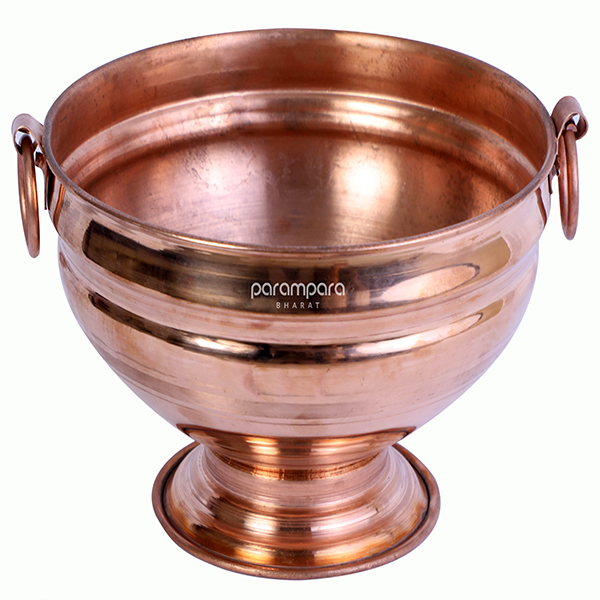
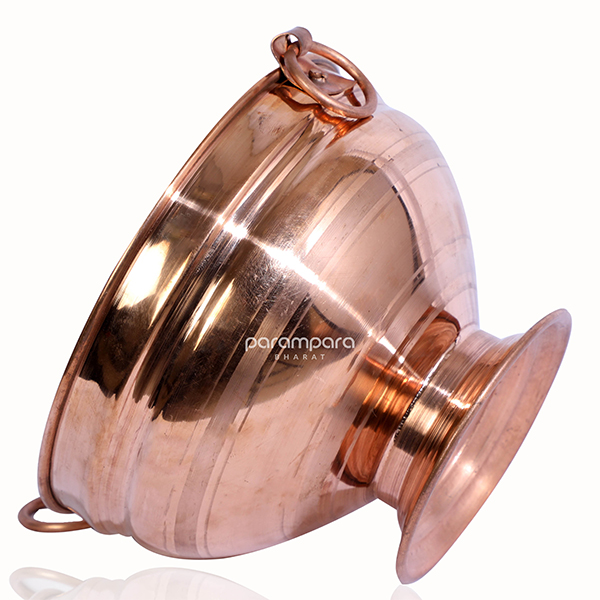
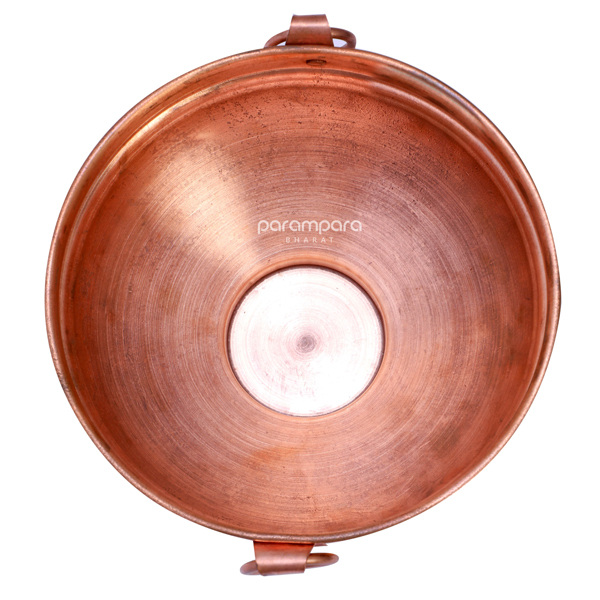
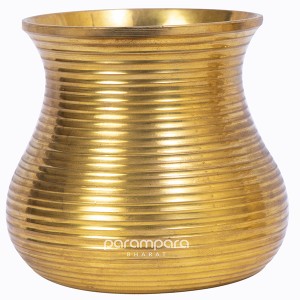
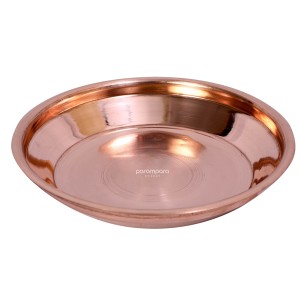
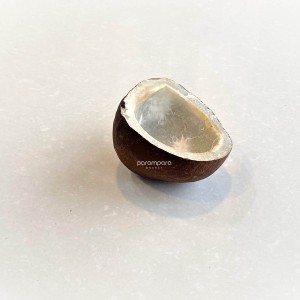
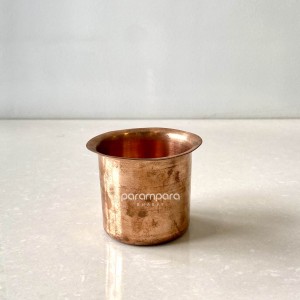
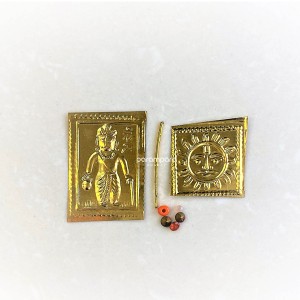
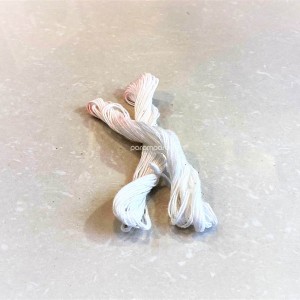

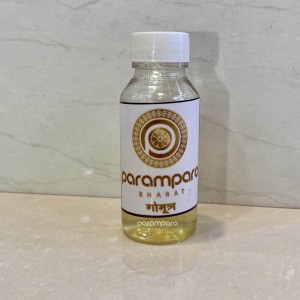

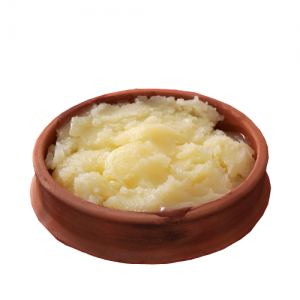


Reviews
There are no reviews yet.